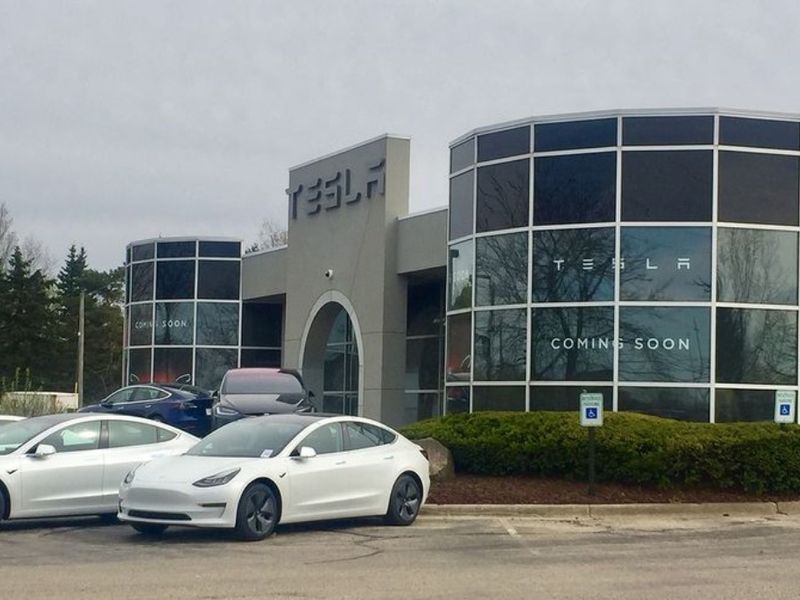
A Michigan House committee passed a bill Thursday that would prevent electric vehicle manufacturers beyond Tesla from selling directly to consumers in the state, setting up a battle between franchised dealerships and EV startups over the direct-sales model.
Michigan’s House Bill 6233, which would codify into law a settlement reached by Tesla and the state of Michigan in federal court this year, would exempt the EV maker from the state’s ban on direct vehicle sales. But rival electric startups, such as Rivian, contend the bill would prevent them from selling directly in Michigan by carving out an exception that applies to Tesla only.
The five-member House Government Operations Committee passed the bill along party lines, sending it to the floor for consideration. The bill was on the state House’s session agenda Thursday as a potential addition, but a spokesman for majority House Republicans told Automotive News it was not expected to see action Thursday while work on it continued.
State Rep. Jason Sheppard, a Republican who sponsored the bill, could not be reached for comment Thursday.
Terry Burns, executive vice president of the Michigan Automobile Dealers Association, told Automotive News the bill is the group’s response to the settlement state leaders reached with Tesla in January in a yearslong court case over the EV manufacturer’s ability to sell directly to consumers in Michigan.
Tesla sued the state in 2016 over its direct-sales ban. The settlement reached with Michigan Attorney General Dana Nessel, a Democrat who took office in 2019, allows Tesla to operate its galleries in Michigan — although the title transfer must be done in another state — and operate service facilities through a subsidiary.
Codifying the Tesla agreement “would make it now a legislative issue rather than just a settlement issue. That way, it’s in the law and everybody knows what it is,” Burns said Thursday.
“We stand on the same position we’ve always stood on, and that is, for the last 30 years, every other manufacturer in the world that sells vehicles here uses the franchise system,” he added. “It’s worked very well for them, it’s worked well for customers, it’s worked well for the dealers. And that is what the law says today.”
Nessel’s office this year said the settlement terms could enable other manufacturers that don’t have franchised dealerships to operate similarly to Tesla.
The settlement “to us — as we analyzed that, as our lawyers and others have read this — means that it should be applicable to us,” said James Chen, Rivian’s vice president of public policy, who testified before the state House panel Thursday. “And, certainly, you would think that it should be because otherwise what Michigan is doing is applying the law one way to one manufacturer and applying the law another way to another manufacturer, which is unconstitutional.”
In an interview, Chen said, “These changes into the law are sending a strong signal to all companies that Michigan is not welcome, or is not open, to new companies.”
General Motors and Ford Motor Co. also opposed the bill, according to committee testimony.
Whitney McDonald contributed to this report.